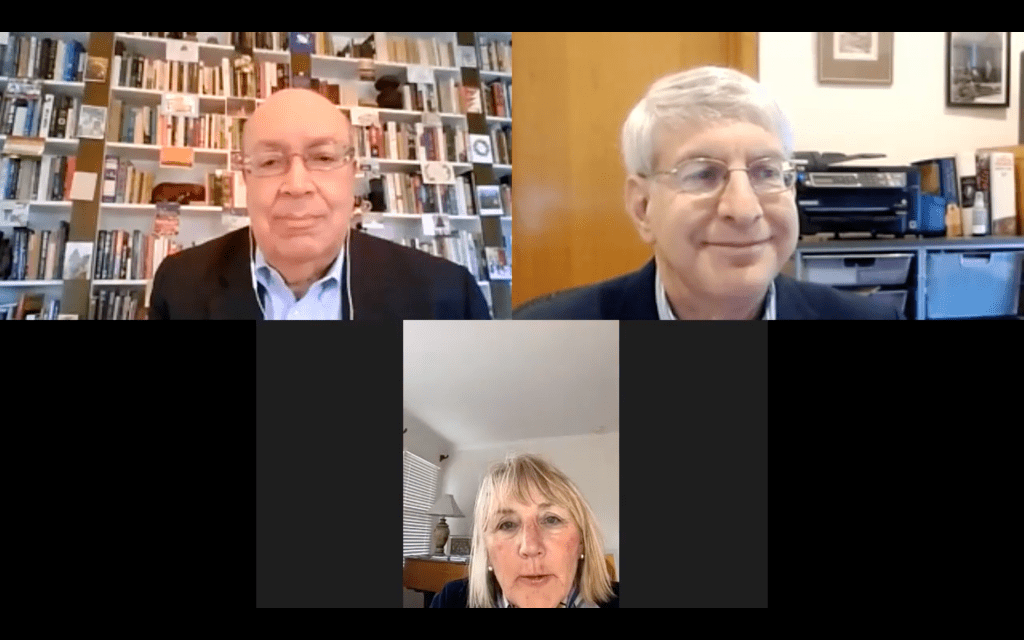On Monday, January 4th, 2021, the USC Annenberg Center on Communication Leadership and Policy hosted Tom Kent, former Radio Free Europe and Radio Liberty CEO, for a conversation on his new book, Striking Back: Overt and Covert Options to Combat Russian Disinformation.
As part of the First Monday Forum series, the event was co-sponsored by CCLP, the Public Diplomacy Association of America, and the Public Diplomacy Council. Sherry Mueller, President of the Public Diplomacy Council, welcomed attendees.
Moderated by CCLP Director of Washington Programs Adam Clayton Powell III, this fascinating and timely conversation explored the central question of Striking Back: How might the West move beyond its defensive approach to Russian disinformation operations? To Kent, a “defensive approach” involves methods such as media literacy campaigns, independent journalism support, and small-scale exposure of Russian disinformation operations. The author explained that his new book proposes that “we be much more assertive in mounting our own campaigns for democratic values” and “vigorously confront those who spread disinformation in forums beyond newspapers and think tanks.”
To develop responses to foreign mis- and disinformation operations, Kent spoke with over 160 specialists in a dozen countries. Together, their professional expertise spanned academia, government affairs, military operations, NGOs, journalism, and more. From these interviews, Kent concluded that “There’s nothing inherent in democratic values or even in true facts that makes it inevitable that they will triumph in this so-called marketplace of ideas.”
A self-proclaimed optimist by nature, Kent maintains that since biblical times, much of human history has been about overcoming oppression. To avoid moving at a “biblical pace,” Kent suggests that the West takes anti-corruption and anti-authoritarian measures to accelerate the spread of democratic ideals around the world in the coming decade. He cited recent pro-democracy movements in Hong Kong, Lebanon, and Armenia as hopeful examples of democratic progress.
“Put it all together and you could talk about a fairly impressive Democracy International that does seem to be on the march,” Kent stated.
However, concern still exists about how the West will approach the global information war. Kent believes that the United States and its allies can push for democracy without descending into the “disinformation swamp” by calling out false narratives and protecting confidence in democratic projects around the world. In the case of Russian citizens, Kent contends that the West should support and amplify the voices of those who are standing up against the authoritarian regime. Of course, such a mission would be complicated and could involve a variety of measures that Kent’s book discusses at length.
As its title suggests, both overt and covert actions can be taken by the West to counter the issue of Russian disinformation. While Kent does not mandate which specific methods be selected, he recommends that “Open, transparent messaging should always be our main form of communication.”
“Liberty makes a better story than authoritarianism,” Kent remarked. To be successful in telling that story, Kent calls for a coherent strategy on US policy toward Russia, which has improved prospects under the new Administration.
The discussion was followed by an engaging Q&A and closing remarks from Joan Mower, Director of Development at the U.S. Agency for Global Media.
